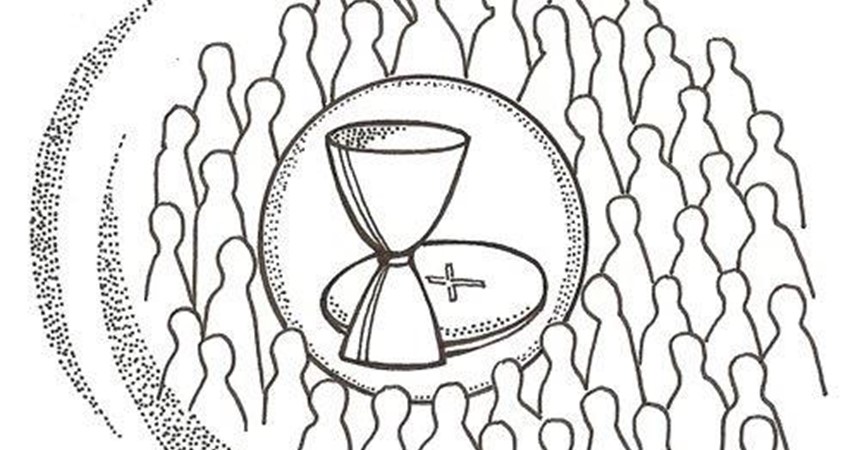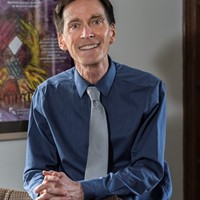An answer to the question begins not with assembling arguments for or against “bothering” with the Church, but with consideration of what is being asked. Does the question seek reasons why someone “outside” the Church ought to bother with it, or is the question asking why those “inside” the Church ought to bother with the implications of their membership?
Engagement with the question also requires clarification concerning “the Church.” As Catholics, we refer often to “the Church”, but are we always attentive to our use of the term? In referring to the Church, do we mean “the institution”, “the structures”? Do we mean “all the baptised”, “the people of God”? Do we include ourselves as “the Church”? The Church is all of the above, so if “bothering” is a task for the Church, it can’t be simply a task for “them”; it must also involve “us”. The willingness to hold those multiple facets of the Church together enables our understanding of the Church to echo the expansive –“catholic”– breadth of vision that the Holy Spirit of God enables.
There’s yet another element that calls for attention in the essay: “bothering” must be understood in light of present circumstances. If our relationship with God is not time-less, but lived always in a particular time and place, then our context will loom large as we reflect on why people would bother, or choose not to bother, with the Church. Context is not just an issue for other people: we can ask ourselves why, in our present situation, we bother with a body into which we may have entered as infants.
As background for the essay, my class read a number of articles that discuss “deconversion” and “disaffiliation”, terms that describe a trend prominent today among Catholics in many countries. The “deconverted” are not simply “lapsed” or “non-practising”, not those who may have drifted away without much reflection. Rather, they are people who find either that the faith in which they were raised no longer addresses the concerns of their lives or who, because they cannot connect to particular expressions of the Church’s life, feel that there is no place for them in the community of faith. The articles describe the deconverted as experiencing sadness and loss in their decision, but also a sense of freedom from the frustration inherent in wanting to belong while being unable to do so. The rate of deconversion has grown in response to sexual abuse in the Church, to the status of women in the Church, and to issues related to marriage and sexuality.
So, then, why bother with the Church? Theological answers to that question must seek to do justice not only to the complexity outlined above, but also to the place of the Church in humanity’s relationship to God. The Church is certainly a human and historical body, one that can be analysed by sociologists and political commentators, but it is not possible to account for the Church in a comprehensive manner unless we take into account what is, and has always been, at the heart of the church’s self-understanding: that the Church is inseparable from our present experience of the God whom we know in Jesus Christ through the Holy Spirit. Given that this coming December marks the fiftieth anniversary of the Second Vatican Council’s “Constitution on the Church”, one way to explore the Church’s identity is through the council’s teaching, especially its description of the Church as a “sacrament.”
When Catholics hear “sacrament”, our first association is usually with “the seven sacraments”, with “signs giving grace.” Vatican II, however, applied “sacrament” to the whole of humanity’s relationship with God. In so doing, the council emphasised that our God, who remains always beyond our grasp, chooses to be known in ways that address us as human beings, in ways accessible to our senses. In creation and in the relationship with Israel, God communicates through tangible realities. As Christians, we profess our faith that God takes flesh in Jesus Christ in order to encounter us “as we are” (Heb 4:15). In Jesus, the primary sacrament, grace and humanity are inseparable.
In depicting the Church as sacrament, Vatican II drew on the Church’s ancient tradition to present the grace of the risen Christ, the reconciliation between God and humanity, as being accessible in history through the Church. The Church neither owns nor controls grace, but the Church, precisely as a human and historical body brought into being by Christ and the Spirit, is the “sign and instrument” of that grace, the guarantee that God’s grace continues to be present and is leading creation to its fulfilment in Christ. Consequently, the “seven sacraments” are expressions of the Church’s sacramentality, not free-standing moments of grace.
As sacrament, the Church’s mission is to embody Christ in the world, while nurturing a relationship with all expressions of the grace of Christ in history. As sacrament, the Church is complex: “at the same time holy, and always in need of purification”, as the council described it. We bother with the Church because we believe the community of faith is the product of God’s grace. At the same time, we must bother with our response to that grace: renewing our dependence on God; seeking constantly to embody God’s reconciling love; confronting our need for conversion; grieving our inability to reach all those longing for what God offers, and praying for them.
I remind my students often that none of us gets the Church we’d design. It could not be otherwise if the Church is truly a work of grace, a symbol of God’s presence in history, one whose membership is not chosen by us. The ongoing challenge for all of us is to grow into the Church that expresses God’s Spirit, to bother about being the sacrament that our baptism empowers us to be.
Rev Dr Richard Lennan is a priest of the Diocese of Maitland-Newcastle and Professor of Systematic Theology at Boston College’s School of Theology and Ministry. Last year he co-edited Hope: Promise, Possibility, and Fulfillment (Mahwah NJ: Paulist 2013).























































































